Vegan bakery continues to gain attention from bakery businesses and consumers but there are still opportunities up for grabs if the proposition is right.
Here we take a deep dive into the vegan bakery market:
Nearly one in five consumers plan to eat more vegan food
Eighteen percent of UK consumers are planning to increase their intake of plant-based food and drink over the next 12 months, according to research from FMCG Gurus.
This, says CSM Ingredients, coupled with the fact that 620,000 people took part in Veganuary last year with many significantly reducing their intake of animal-derived products after the month is over, means bakers should pay attention to the growing trend.
“There are more people than ever committing to a diet that drastically increases consumption of plant-based products and it’s key that bakers can meet these needs with a robust product range,” says Miriam Bernhart, marketing director for Bread & Pastry Solutions at CSM Ingredients.
“It’s important to note that it’s not just for Veganuary, it’s every day, 12 months of the year that people want to consume vegan products and that means incorporating them into everyday product ranges.”

10% of UK cake launches were vegan-friendly
Vegan-friendly products are gaining traction thanks, in part, to innovation in product development.
“The vegan movement continues to grow rapidly, and the vegan bakery market is expanding to keep pace with demand,” says Baker & Baker UK marketing manager Helen Sinclair. She points to a recent Mintel GNPD report which shows that the annual number of European vegan bakery launches has virtually doubled from 6.3% to 11.5% in the last five years.
It’s a similar story in the UK as well. One in 10 new products in the UK cake, cake bars and sweet baked goods market in 2020 carried a vegan/no animal ingredient claim, according to supplier British Bakels. This is up from 8% of launches in 2019 and just 3% in 2018.
Smaller businesses are also getting in on the action as research by the Craft Bakers Association (CBA) showed that almost half (46%) of its members introduced up to five new vegan products in 2022, while 8% introduced more than five new vegan lines. CBA member Coughlans Bakery of Surrey, for example, has taken things one step further with a range that is 97% vegan.

Sustainability is a key factor for consumers
Sustainability continues to be a key consideration in purchasing decisions, giving vegan bakery items the upper hand.
“Growing concerns on climate change and a desire to eat healthier, clean-label products has turned many meat-eaters into flexitarians and it is this group in particular that is driving demand for vegan products,” says Sinclair from Baker & Baker.
These are consumers looking to reduce their environmental impact, but not necessarily cut meat and dairy out completely.
“In stark terms, it simply isn’t sustainable to carry on eating the levels of animal products we currently do worldwide,” adds Michael Schofield, marketing manager at British Bakels, who highlights personal health implications, a growing global population and environmental impact as part of this.
While sustainability is high up the list of priorities, it’s not the only consideration. Taste will always remain king when it comes to baked goods but other factors do come into play.
“Consumers have in recent times shown a heightened preference for healthier baked goods, but there remains a large pool of shoppers seeking indulgent, permissible treats to satisfy the taste buds,” Schofield adds.
Rising cost-of-living could hamper growth
There are new launches aplenty but vegan bakery is still something of a “slow burn”, making it vulnerable to wider economic factors.
“While veganism is expanding throughout the bakery space – in-store bakery, bread, sweet bakery, laminated pastry, longer life products – and it doesn’t seem to be slowing down, it is a ‘slow burn’ as so many other forces are at play in the current economic climate, affecting ingredients supply and NPD,” notes Jacqui Passmore, marketing manager UK and Ireland at Dawn Foods.
Passmore questions whether consumers will still push for vegan products during times of austerity or whether “locally sourced, value for money products become more prevalent”, particularly if ingredient and global sourcing issues mean there is less choice on shelf.
“The cost-of-living crisis has impacted on purchasing behaviours and it will be interesting to see if it influences people buying vegan bakery products, which are typically more expensive,” says Baker & Baker UK marketing manager Helen Sinclair.
Notably, price was named by 29% of respondents to Baker & Baker’s Bakery Bites poll when asked why they would be less likely to purchase a sweet bakery item with a vegan claim.

Plant-based or vegan?
Are plant-based and vegan diets the same thing? Not according to the British Nutrition Foundation which defines plant-based diets as those with a “greater emphasis on foods derived from plants” but do not have to be “plant only”. Vegan diets, meanwhile, omit all animal-derived products.
Consumers are confused though. Research by Baker & Baker for its Bakery Bites report, which focused on the sweet vegan bakery market, found 49% of the 1,000 consumers polled believe there is no difference between the two, while 15% were unsure.
However, with a relatively low number of vegans in the UK, there are benefits to broader appeal.
“Labelling a food as ‘plant-based’ rather than ‘vegan’ is a more attractive proposition, according to our latest research,” notes Lydia Baines, marketing manager, patisserie, Puratos UK.
“Targeting flexitarians is a wise choice as they are driving the growth. Around half of UK consumers are looking to make their diet more plant-based, and their motivations are most commonly health benefits rather than environmental ones,” she adds.

Vegan doughnuts are growing rapidly
Doughnuts are driving consumers wild in the vegan bakery market – a trend replicated in the wider bakery arena as well.
Doughnut specialists, including Crosstown, Doughnut Time and Project D, have been capitalising on this trend for a while now as they look to appeal to a wide range of doughnut lovers. Even bakery behemoth Greggs has a vegan doughnut in its line-up.
“[We’re] seeing the fastest growth in vegan doughnuts and this area is continually expanding,” explains Jacqui Passmore, marketing manager UK and Ireland at Dawn Foods.
This sentiment is echoed by other suppliers, such as British Bakels, many of whom offer vegan-friendly doughnut mixes, toppings and fillings to help bakery businesses tap into this demand.
Baker & Baker, which debuted a range of vegan bakery products in early 2022, said the pink velvet ring doughnut was among the bestsellers alongside the blueberry muffin.
There are other opportunities up for grabs as well
“There’s huge plant-based growth potential across bakery, patisserie and chocolate,” believes Baines from Puratos UK, as long as recipes and ingredients are “chosen carefully to meet taste expectations and reduce environmental impact”.
Baines points to plant-based pastry as a “stand-out category”, noting an increasing number of artisan bakeries moving from butter as a key ingredient to plant-based options. “We expect to see larger bakeries and retailers follow suit as vegan products become more mainstream,” she adds.
Karen Dear, director of operations at the Craft Bakers Association, expects savoury vegan bakery items to drive growth in 2023 with bread, sandwiches and savoury pastries already having increased in demand in the last six months.
Passmore at Dawn Foods, meanwhile, expects to see the vegan own label market expand in 2023, driven by retailers and foodservice providers. Asda, for example, has unveiled 112 new vegan products for Veganuary 2023 under its OMV! and Plant Based ranges, with bakery items including Caramel Blondies, Choc & S’mores Brownies and Double Choc Chip Cookies.

Consumer perception is changing, albeit slowly
“Taste and flavour is a major concern in the overall plant-based market that needs to be addressed, according to the Innova Health & Nutrition Survey 2021,” says Michael Schofield at British Bakels.
Vegan bakery has long suffered from negative consumer perception as a result, but the tide is turning.
“Historically, plant-based foods suffered from a bad reputation when it came to quality and taste, and this has been an important turnaround for the industry to make,” says Puratos’ Baines. “It is happening now, but many consumers remain wary and still expect vegan products to taste inferior.”
Manufacturers and bakers have been working hard to dispel these perceptions, but it seems consumers will always want more.
“Customers are no longer satisfied with a single vegan offering; they demand the same choice along with the premium fillings and toppings comparative to their non vegan counterparts,” adds Passmore from Dawn Foods. “The key to a successful Veganuary and adapting vegan foods into an ongoing offering is to recognise that many consumers do suffer from FOMO (fear of missing out). A good vegan bakery offering should provide consumers with vegan alternatives that replicate, as close as is possible, the eating experience of non-vegan products.”
There are still technical challenges to be conquered if this is to be achieved across the board.
“Replacing traditional bakery products, which rely on high proportions of egg or dairy, with a vegan alternative is difficult,” explains Passmore from Dawn Foods. “Egg and dairy ingredients provide protein and therefore structure to all types of baked goods, which is hard to replace or replicate. They also affect flavour, texture and mouthfeel and it can be difficult to re-create the same eating experience in these types of products.”



















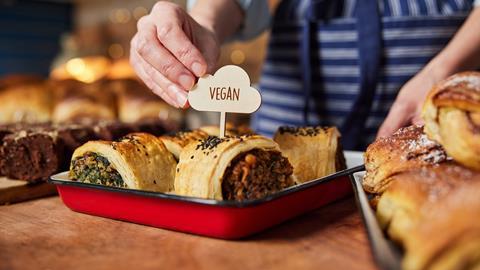

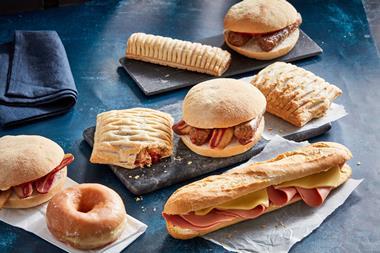

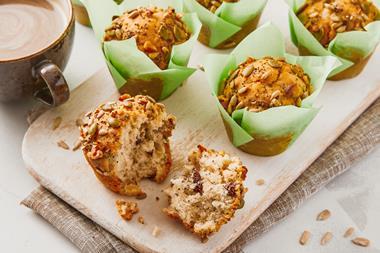

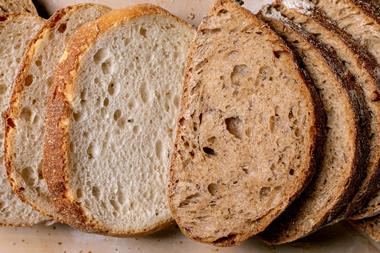





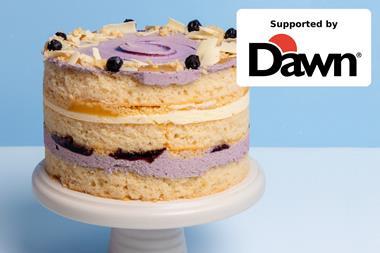

No comments yet